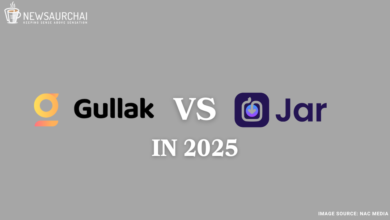Are MEGACORPS The Next Big Thing??

We are entering a new age of business. It is in its infancy currently, but if the trend continues we are going to see a lot of news about mergers down the years. Recently, DOJ in the USA filed an anti-trust lawsuit against the merger of AT&T and Time Warner. Scrutiny against this merger has been growing and with good reason. AT&T is, among many things, a content distributor. Whereas, Time Warner is a content creator. Criticism has centered around the large control AT&T will have on the content that world population consumes, choking innovation in video and distribution technology, and rise in prices of Time Warner’s properties such as HBO, Warner Bros. etc.
Above example was of the vertical merger, when two companies which are not directly in competition merge together. They are usually seen as good for the market and governments usually don’t oppose this as two companies which were not in direct competition can use their resources together to challenge the giants of the market. There’s a catch though – they can be harmful to competition if either of them is dominating firm in the market, or the market is not competitive, to begin with (for example, markets with huge entry barriers).
Horizontal mergers are when two companies in direct competition merge. The problem is obvious – fewer options for the consumer, rise in prices (though initially, prices fall as firms indulge in predatory pricing but soon winner emerges and can set the price as they desire), and slowing down of technological innovation. Horizontal mergers are almost always met with a lot of criticism and scrutiny but they do happen often enough for us to worry. Recent examples include Facebook acquiring Instagram and WhatsApp, Disney acquiring FOX etc.
The new and alarming trend is for companies to indulge in both. In this new era, horizontal mergers are commonplace. Companies acquire competitors, narrowing the choices for consumers, eventually resulting in monopolies or duopolies. The result is a market that initially was competitive but now has just one or two firms. This is where vertical mergers become a problem. In an uncompetitive market, vertical mergers give rise to megacorps which are massive conglomerate having control over multiple markets exhibiting both horizontal and vertical monopoly.
Firms like Facebook, Google, and Amazon also raise concerns about fair competition. They enjoy legal exemption. Google and Facebook are not responsible for what users do on them, unlike a publisher. In some cases, these firms don’t compete in a marketplace but are a marketplace themselves providing infrastructure for digital economy to function.
Amazon is the closest thing we have to megacorp today (but still far from what a megacorp can be). With its business tentacles involved in E-commerce, financial services, cloud services, transportation and logistics, publishing, clothing, hardware, media production etc., it is a giant of behemoth proportions. It is a retailer and a marketplace. Users do seem to love it today with its seamless integration of different areas in which it conducts its business, but what happens when we become completely dependent on it? In best case scenario, it’s lack of options across the board (a megacorp dominates across nearly all sectors of business), rising prices and slow technology change because of lack of competition. At its worst, we might have another company on scale of VOC; one which interferes with government agenda through lobbying, power to propagate and change views and set agendas, a company as large as GDP of a medium sized country in control of a commodity/service that, in all sense of the word, can be called utility.
If you are thinking that worst case scenario is not possible then you are not thinking on the right scale. As I said, we are at the infancy of this new era of megacorps. It is a story that is just starting. Pure capitalism (unchecked, unregulated) will always result in a monopoly. I might sound anti-capitalist but bear with me for a moment and you will realize I am a supporter of checked and regulated Capitalism. Companies start with horizontal mergers. Why fight your competition when you can buy it? This soon results in monopolies (remember, we are talking about unchecked and unregulated capitalism here). As companies remain the only one in the market, it makes sense to bring the companies they depend on under their Umbrella. Why depend on quality and limitations of smaller companies when you can buy them and control everything in-house? Vertical mergers become possible only when the company has grown up to the point where they can afford to enter a different marketplace in the same sector. It started with Ford when they entered steel business to always ensure a steady supply of their car manufacturing plants. Integrating backward to the point of origin of your business gives you complete control over the sector. Pure capitalism leads to the death of principal on which capitalism survives: Competition.
Fear of emergence of megacorps is fuelled more by the high entry barriers that exist in nearly every sector now. Data Science, machine learning, and AI are the next big thing. Any firm that master these first is bound to emerge victorious in this race of megacorps. All of these fields depend upon one main thing; large enough data set. Your algorithm is going to be more accurate if it has more data to work with. Data is one thing that a new company does not have. Google, Facebook and, Amazon etc. among them have a large and extensive enough data set to accurately profile a lot of population. Apart from this, there is an economical barrier too. Every field has advanced so much that further advancement and research comes at a hefty price. This leaves a situation where the only handful of well-established billion-dollar corporations are able to invest in the next era of technological revolution.
Usually, problems such as this can be solved by regulations, price control, profit cap etc. but how do you regulate prices when the service being offered is free. We neither pay for Google nor Facebook. Breakups will have more harmful effect as it will cripple the economies of scale of these platforms, worsening the service it offers. It will also choke innovation as companies will scramble to put together resources for R&D. One solution is to look more deeply into mergers and scrutinizing whether they will neutralize a long-term threat even though company being bought is small currently. Google buying Waze and Facebook acquiring Instagram would have been stopped if regulators had an accurate measure of competition.
Next is the sharing of data hoarded by these companies. Our data is the currency by which we buy these services. New laws regarding sharing and ownership of data should be drafted giving individuals solid rights. If a user desires, key data can be made available to other firms that might benefit from it. Regulators can make giants share anonymized bulk data so that other budding companies can make use of them and reach maturity instead of being eaten by one of the giants. These steps will turn data into something that giants hoard with the intention of suppressing competition into something that users can share to stimulate innovation. After all, if the service being offered has become more of a utility, it should be regulated like one. Anyone who disagrees with Google being a utility should try having a start-up without listing it on Google.
Megacorps used to be something only found in sci-fiction novels and movies. Most of them are usually shown evil like LexCorp in DC comics or Tyrel Corporation in Blade Runner. They might also take the form of BnL from Wall-E, not inherently evil, but one which governs and serve the major part of Earth. Whatever it may be, currently we are on the path to a cyberpunk future. It is hard to imagine where corporations have become as big and strong as nations but perhaps a look back in the history of VOC and East India Company can make it more imaginable.





